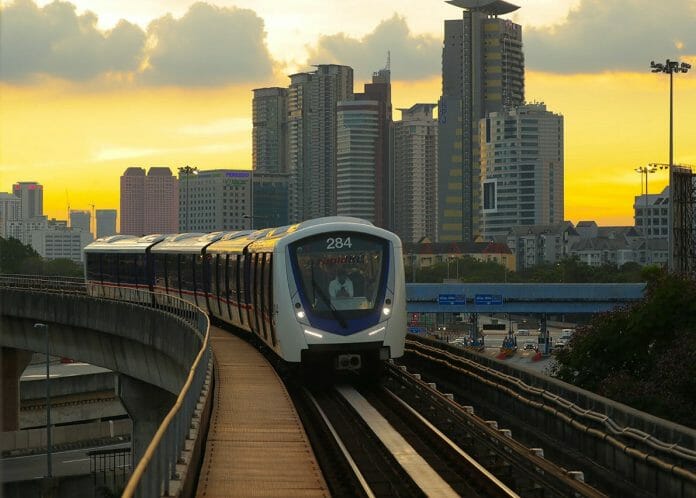The Government of Malaysia has been at the forefront in leading the charge in environmental sustainability and combating climate change. It is at the core of what we are trying to do for the country now and in the future, including through our key framework policies, among others the Madani Economy, the National Energy Transition Roadmap (NETR), the Hydrogen Economy and Technology Roadmap (HETR) and the New Industrial Masterplan (NIMP 2030).
Natural Resources and Environmental Sustainability Minister Nik Nazmi Nik Ahmad said today (Dec 19) that climate change is not the only reason we are developing and implementing these policies. In fact, integrating sustainability into key policies is also the best way to future-proof our standard of living as well as our economic prosperity and competitiveness in a world that is rapidly changing.
Last week on 13th December 2023, the 28th Conference of Parties (COP28) to the United Nations Framework Convention on Climate Change (UNFCCC) in Dubai adopted a historic outcome called The UAE Consensus, he said, adding, the decision is a historic turning point where for the first time in the history of multilateral climate diplomacy, nations consented for global efforts to reduce greenhouse gas emissions in line with 1.5 °C pathways by, among others, transitioning away from fossil fuels in energy systems.
On these terms, Nik Nazmi was happy to see Prasarana Malaysia Berhad achieving its important and historic milestone with the launch of the Prasarana Sustainability Blueprint, as it was one of the first government-owned company to realise a commitment towards environmental sustainability.
The Blueprint’s transition efforts will be implemented in just, orderly, and equitable manners, and will reflect equity and the principle of common but differentiated responsibilities with respective capabilities enshrined under the UNFCCC and the Paris Agreement.
There was of course much debate within and on the conference, and much work including in mitigation, adaptation, just transition and finance lies ahead for all countries to collectively address the UAE Consensus Nik Nazmi said, but what it arguably means is that climate actions and sustainability transition are now a global watchword. It is something that all countries and indeed, companies will need to embrace and master. For the latter, it is not only to merely check off boxes to satisfy regulators, activist investors, or customers, he said.
“The fact that the transition efforts will be implemented in a just, orderly, and equitable manner will be welcome for developing countries like ours. But we must take cognisance of the fact that the eyes of the world are on us. And our consumers including our trading partners are becoming more conscious and concerned. As such, sustainability is now a business and survival imperative.”
Nik Nazmi assured that the government of Malaysia has and is doing much to address climate change, predating the UAE Consensus, which includes ensuring our businesses and people can navigate the transitions that are surely coming. “The clarion call is now going out to the private sector and the public to likewise take up the banner of sustainability—and indeed, I have seen a growing interest, even eagerness, to do so across the board.”
Prasarana To The Fore Of Sustainability
Organisations such as Prasarana are making transformative strides, particularly in the transportation sector, and ushering in a new era of low-carbon mobility, in line with the Government’s broader sustainable agenda, including the Low Carbon Mobility Blueprint 2021-2030.
“I would like to commend Prasarana for its efforts, both directly and indirectly, in advancing environmental sustainability. This move will greatly enhance the public transportation system, helping people get around more easily, and ensuring connectivity, while promoting green mobility. Transportation, as we know, is the second-largest emitter of greenhouse gases. And yet, as noted, it is something that almost everyone uses and needs, especially for it to be reliable and affordable. Thus, Prasarana’s leadership’s decision to make a stand in the transport sector by setting clear goals for Low Carbon Mobility is bold and commendable.
Prasarana’s dedication to supporting our nation’s net-zero ambition by 2050 is evident in their commitment to flagship catalyst projects such as energy audits for the rail sector, public transport electrification, and the implementation of solar PV for rail operations.
These initiatives align seamlessly with not only the Government’s goals but also with the United Nations’ Sustainable Development Goals, specifically focusing on Affordable and Clean Energy (Goal 7), Industry, Innovation, and Infrastructure (Goal 9), and Sustainable Cities and Communities (Goal 11).
By aligning its efforts with these global objectives, Prasarana is not only contributing towards national development but also to the broader global sustainable development agenda. Prasarana’s targeted initiatives on decarbonisation, including bus electrification, energy audits, energy cost-saving measures, and rooftop solar PV, are all positive steps towards a more sustainable future.
Prasana’s proactive actions also contribute to the Government’s plans to increase renewable energy capacity to 70% by 2050, reinforcing our commitment to a cleaner and greener energy landscape. To that effect, all sectors and organisations must work together to drive our nation towards a more sustainable future.









